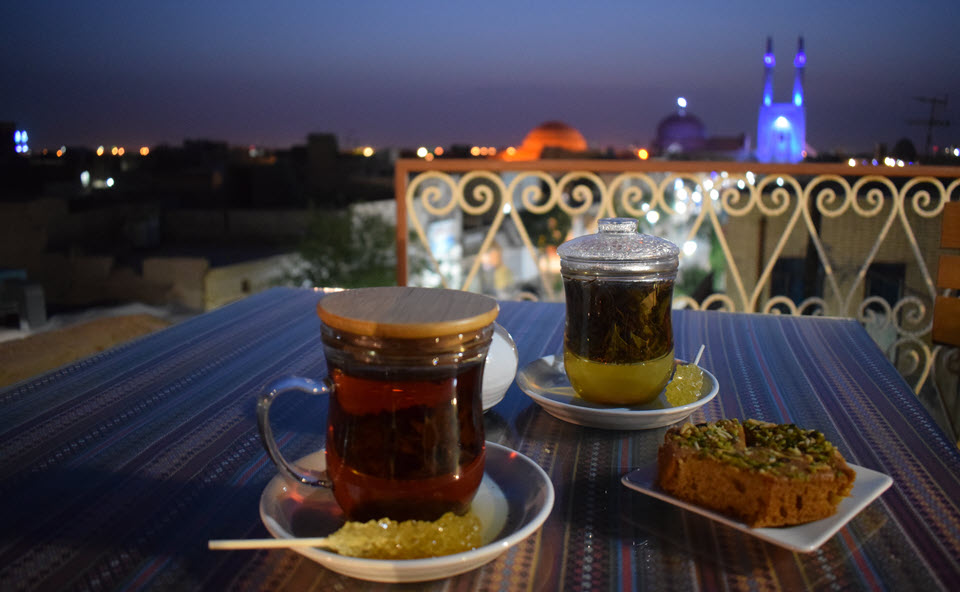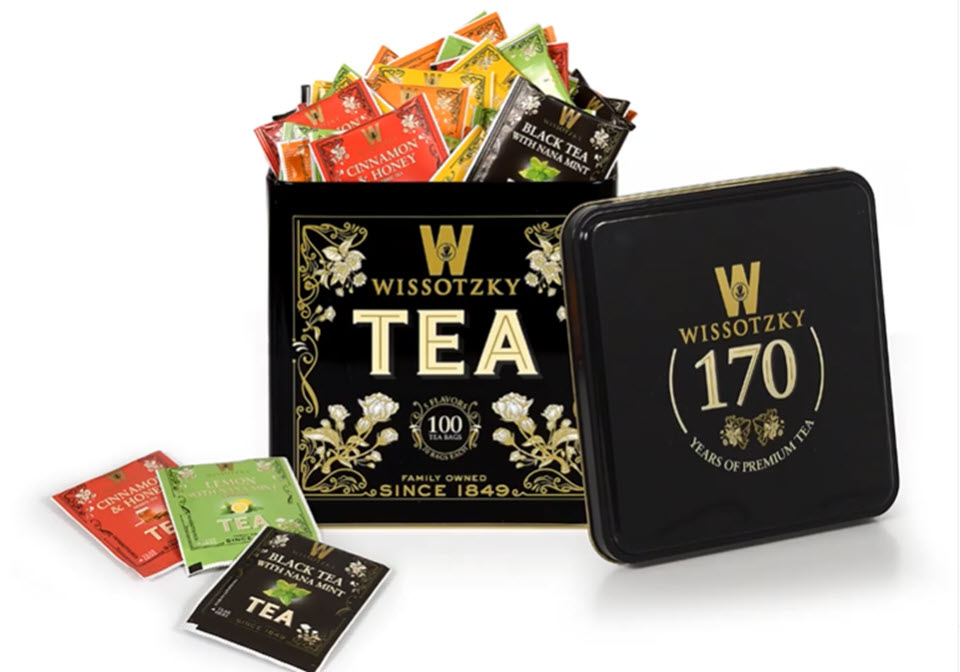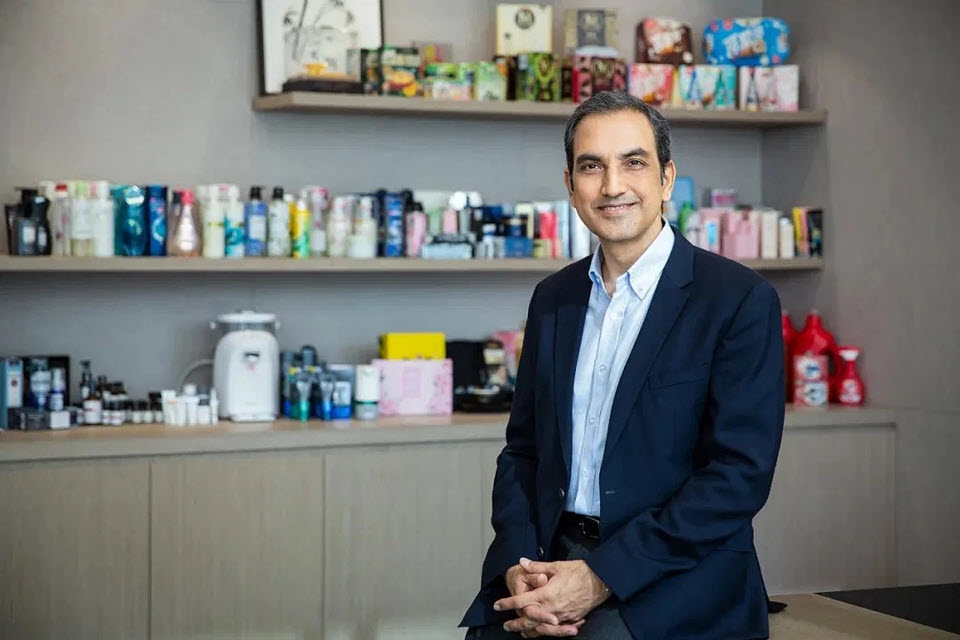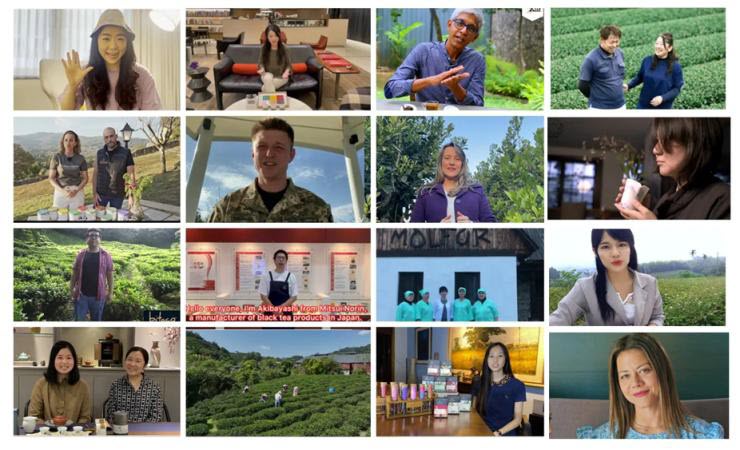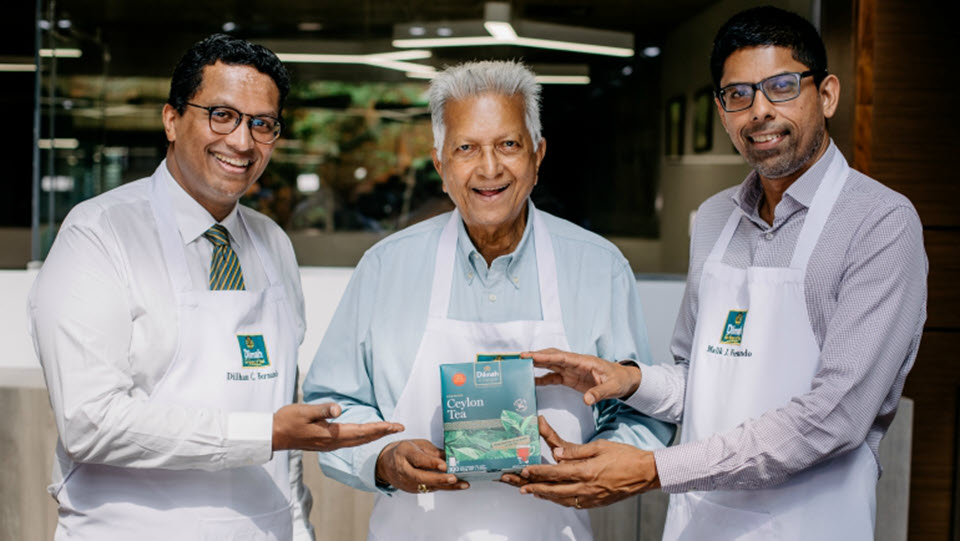
Listen to Episode 126
Tea News for the week ending July 21
| Global Average Air Temperatures Reach a New High
| Herbal Tea Market Growth is Accelerating
| Dilmah Tea Founder Merrill J Fernando Passes at 93
Hear the Headlines
PLUS
Pradeep Kumar Sacitharan is an expert in business development with a passion for assisting online entrepreneurs in dealing with disruptions like the tea industry is facing. He is CEO of London-based Donsfield, a trade development firm that buys and builds successful global brands. Pradeep writes that “growth in life is to be able to take bigger risks at a faster pace at every stage.”
Listen to the Interview
Unrelenting Heat Lowers Tea Yields
By Dan Bolton
China, Africa, and India are experiencing such intense heat that summer tea yields have dropped.
Oppressive temperatures greatly restrict the time pluckers can spend in the heat, and in several global hot spots, tea bushes are dropping their leaves.
Le Monde reports that ten months after the exceptional heatwave that hit China in the summer of 2022, the region’s tea growers are still suffering the consequences.
“We’ve had at least 40% less production,” said Wu Wen, a Longjing grower in Hangzhou. “But we’re not the worst affected: look,” she said, pointing to three dead plants dumped on the edge of the neighboring field.
Beijing set a new record this week as temperatures remained above 35 degrees Celsius (95 Fahrenheit) for the 28th day.
Last month was the warmest June since at least 1850, and the first two weeks of July are very likely the warmest two-week period on record, according to the Copernicus Climate Change Service.
The Southern Monsoon, which normally arrives in Northeast India in June, brought ample rainfall inundating tea lands in July. The India Meteorological Department recorded rainfall 62% above average from March through May 2023. In 2022 Assam experienced floods in three waves from April through October, killing 180 and inundating more than 9,000 villages, the worst flooding in 10 years. July-like temperatures in Assam first arrived in March.
Temperatures in Africa and the Middle East are approaching 50 degrees Celsius.
Kenya was spared these extreme temperatures but is nonetheless suffering the effects of climate change. The Horn of Africa typically experiences two rainy seasons — the “long rains” from March to May and the “short rains” from October through December. From the fall of 2020 to the end of 2022, each of these seasons’ rainfall was far below average, with several river basins seeing their lowest rainfall totals since 1981, according to the Washington Post.
Drought has affected more people worldwide in the last 40 years than any other natural hazard, according to the United Nations FAO.
BIZ INSIGHT -Amadou Thierno Gaye, a research scientist and university professor at Cheikh Anta Diop University in Dakar, the capital of Senegal, told Bloomberg News, “Africa is seen as a sunny and hot continent. People think we are used to heat, but we are having high temperatures for a longer duration. Nobody is used to this.” Hundreds of millions of Africans lack electricity to even power a fan. One in three people in Africa is affected by water scarcity, according to the World Health Organization, so hydration can’t be taken for granted.
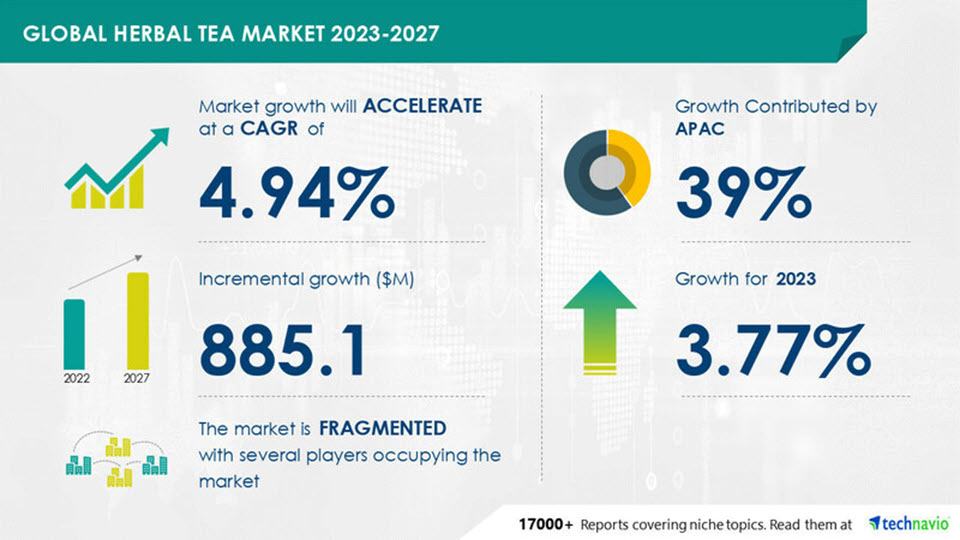
Herbal Tea Market Growth is Accelerating Globally
By Dan Bolton
A new report assessing the Global Herbal Tea Market by Technavio market research projects the market to grow by $885.1 million through 2027.
The market globally is becoming more competitive, writes Technavio: QUOTE “Moderate competition and declining profit margins are some of the significant risk factors for vendors” END QUOTE
Technavio anticipates a combined annual growth rate of 4.94%, which is up from 3.77% recorded for the period 2022-23.
The market is fragmented, with several global and regional brands and some new players.
“To survive and succeed in such a competitive environment, it is imperative that vendors distinguish their product offerings through clear and unique value propositions.”
New players include FMCG giant Dabur Ltd., which entered the green tea market in September 2022 with the launch of Vedic Tea.
The Asia Pacific region will account for 39% of market growth, with China and India in leading roles, according to Technavio. E-commerce distribution via third-party suppliers such as Amazon is driving sales.
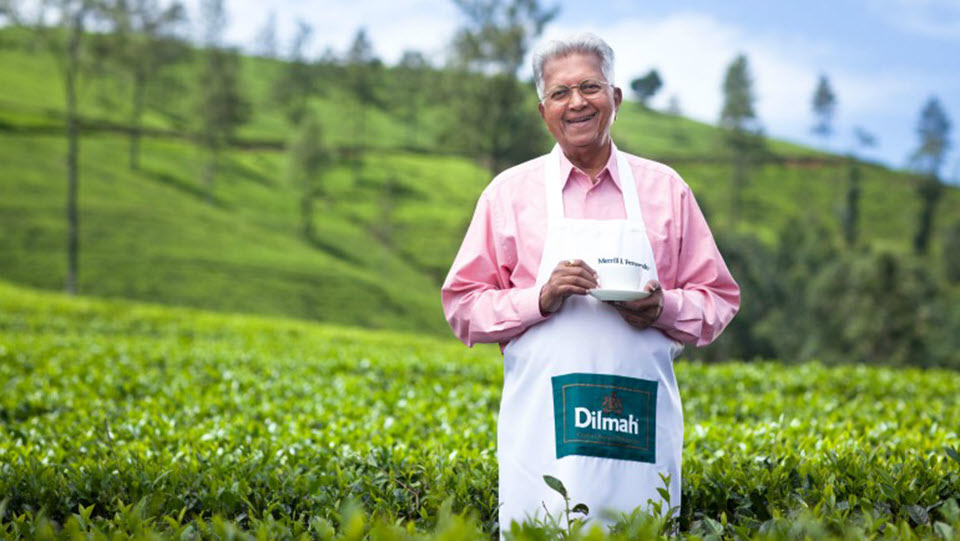
Dilmah Tea Founder Merrill J Fernando Passes at 93
By Dan Bolton
Merrill J. Fernando, a taster and tea maker who rose in the ranks to establish one of the world’s most recognized tea brands has passed. Fernando, who was 93, was surrounded by his sons and grandchildren in Colombo, Sri Lanka on July 20.
A website paying tribute to Fernando states that the “visionary founder’s greatness was in his invincible faith, integrity, and love for tea and family… His achievement in disrupting an exploitative colonial industry irrevocably changed the lives of producers around the world, introducing a paradigm shift in ethical business before ethics and sustainable business acquired the prominence they have now.”
He is succeeded by his sons Dilhan and Malik for whom the company is named. Merrill began his career in 1954 as a tea assistant and advanced to become managing director at A.F. Jones & Co. He established a bulk tea trading business and in 1988 launched the Dilmah brand.
The website displays hundreds of condolences in many languages from countries around the globe. To contribute, visit mjf.dilmahtea.com A memorial service on July 22 at St. Mary’s in Pallansena will be followed by a private burial.
Share condolences at mjf.dilmahtea.com
FEATURES

The Critical Role of Data in Defining Consumer Demand
By Dan Bolton
Pradeep Kumar Sacitharan, CEO of London-based Donsfield, offers valuable insights into online sales and marketing. In this discussion, he advocates for MTC (manufacturer-to-consumer) a business model suited to specialty tea. Pradeep was born in Sri Lanka but fled at six during a tragic civil war. In England, he earned a master’s degree at Imperial College in London, a doctorate in molecular and cellular medicine from the University of Oxford, and he was named a Fulbright Scholar studying medicine at Harvard University with fellowships at the Sorbonne University in Paris and Xi’an Jiaotong University in Suzhou, China. Pradeep grew up in a tea-drinking family and was involved in a tea business that failed to thrive. He shares that story and offers valuable insights into sales and marketing. In this discussion, Pradeep advocates for MTC (manufacturer-to-customer), a business model suited to specialty tea. He is a digital marketing resource with expertise largely untapped by the tea industry.
Listen to the Interview
Share this episode with your friends in tea.
Signup to receive Tea Biz weekly in your inbox.

